Problem-Solving Skills Normal Alphabet Worksheets for Ages 4-7
6 filtered results
-
From - To
At Kids Academy, our Problem-Solving Skills Normal Alphabet Worksheets for Ages 4-7 provide a fun and educational way for young learners to develop critical thinking abilities. By integrating alphabet learning with challenging puzzles, these worksheets boost problem-solving skills, enhance concentration, and foster perseverance. Children will enjoy identifying letters while solving engaging activities designed to strengthen their cognitive development. Perfect for preschool and early grade school students, these printable worksheets will turn learning into an exciting and rewarding adventure. Help your child build a strong foundation in literacy and problem-solving with Kids Academy's expertly crafted resources. Join us today to ignite your child's passion for learning!
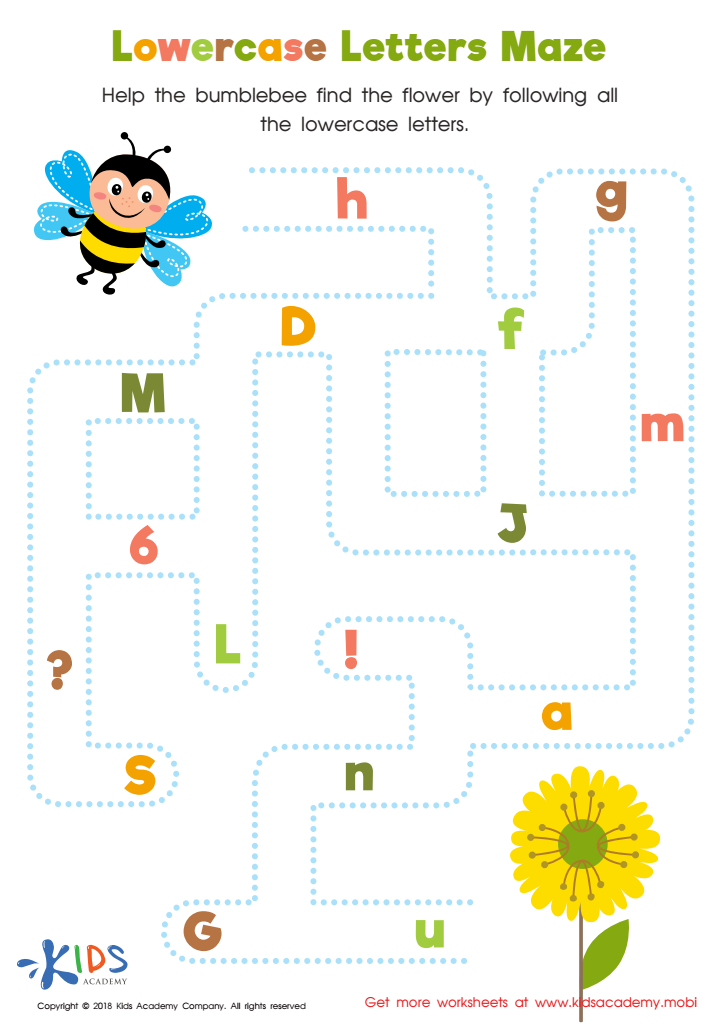

Lowercase Letters Maze Worksheet
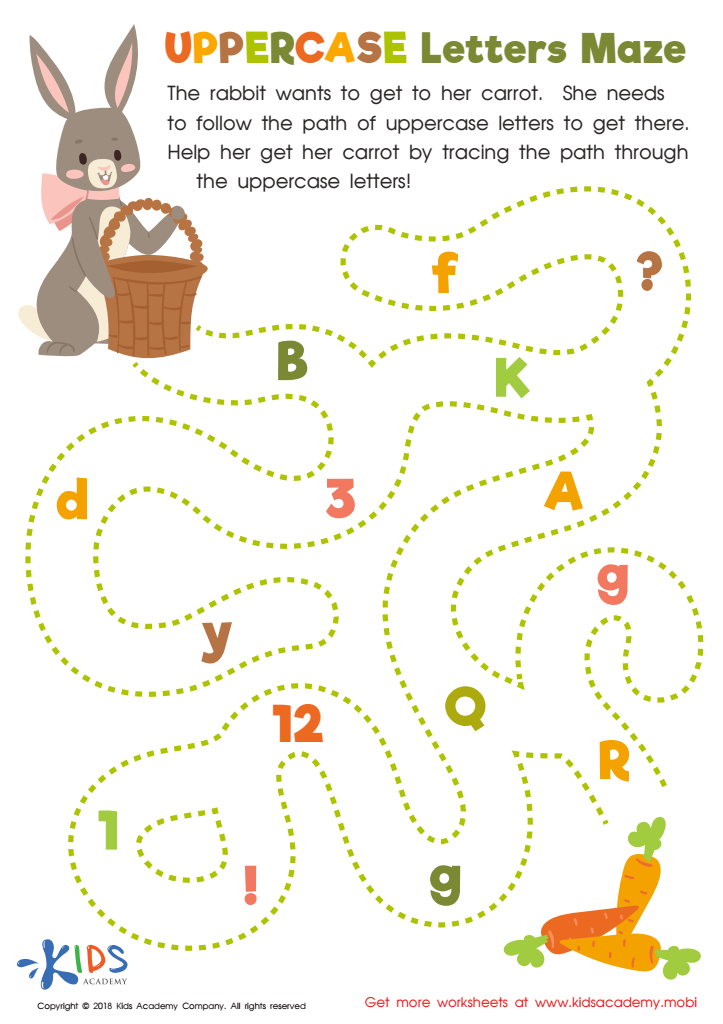

Uppercase Letters Maze Worksheet
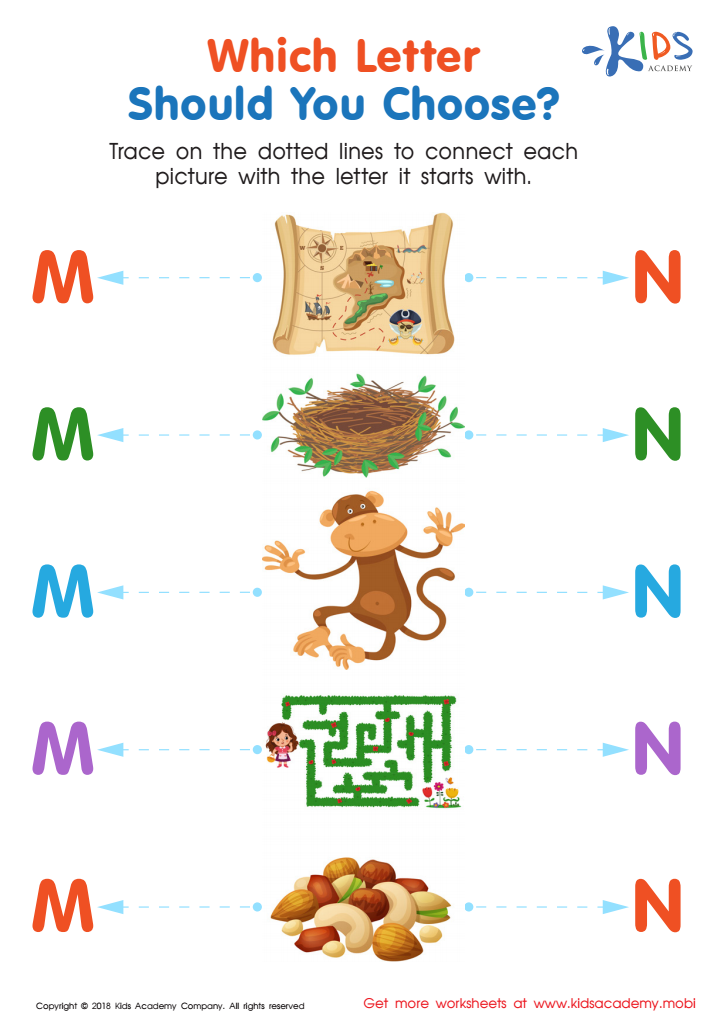

Which Letter Should you Choose? Worksheet


Long Vowel Maze /o/ and /i/ Worksheet
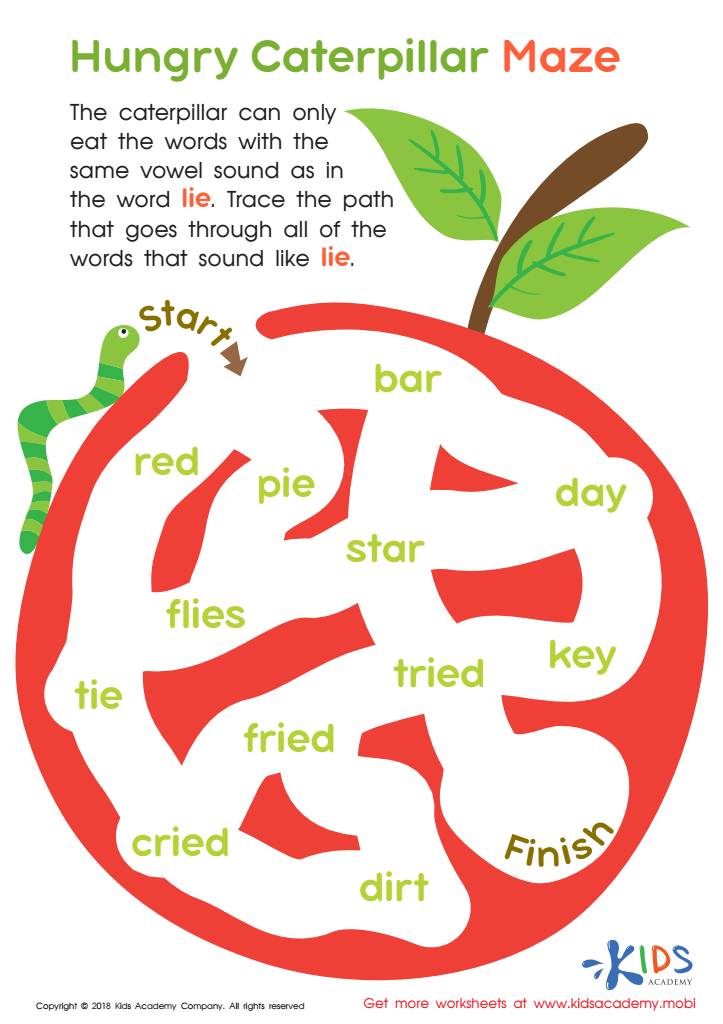

Hungry Caterpillar Maze Worksheet
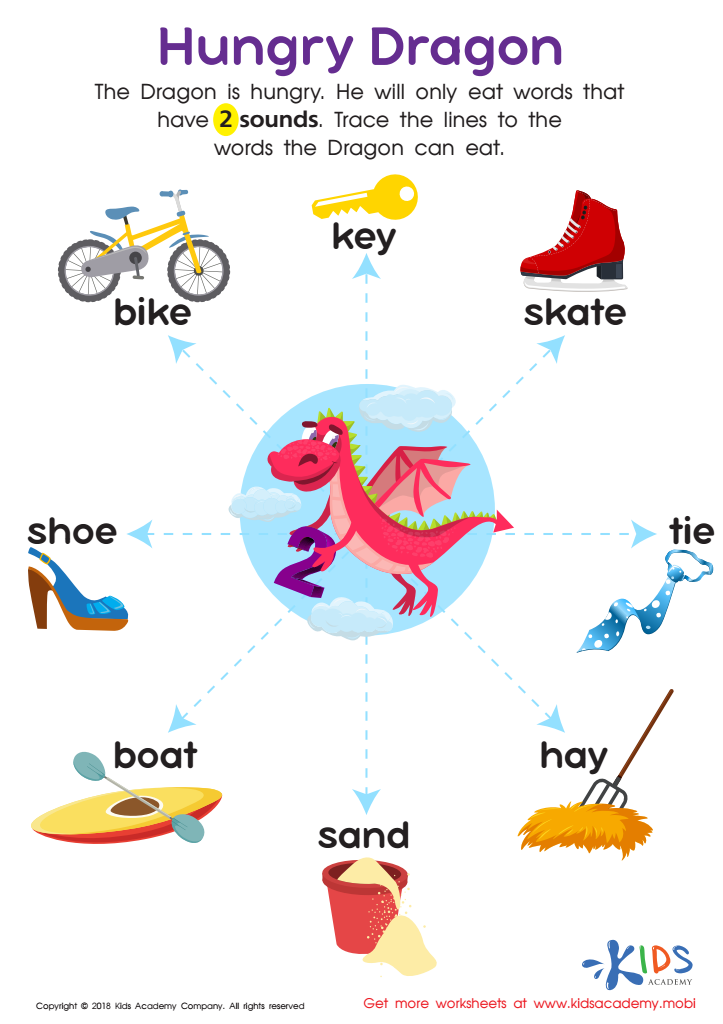

Hungry Dragon Worksheet
Problem-solving skills are essential for young learners, particularly those aged 4-7, because they form the foundation for critical thinking, resilience, and independent learning. During these early years, children are naturally curious and open to exploration, making it an ideal time to nurture their problem-solving abilities.
For parents and teachers, fostering these skills through activities like the Normal Alphabet challenge helps children learn to encounter and overcome obstacles. Engaging with such challenges enhances cognitive development, improving abilities in reasoning, logic, and creativity. Children who develop strong problem-solving skills are more likely to approach difficulties with confidence and persistence, both in academic settings and in everyday life.
Moreover, problem-solving tasks encourage collaborative learning and effective communication. When children discuss their thought processes and strategies with peers or adults, they practice articulating their ideas and listening to others' perspectives.
Beyond cognitive benefits, problem-solving skills build emotional resilience. As children learn to cope with frustration and setbacks, they develop a mindset that views challenges as opportunities for growth rather than insurmountable barriers. This is crucial for long-term educational success and personal development.
In summary, prioritizing the development of problem-solving skills in early childhood sets the stage for well-rounded, capable, and thoughtful individuals equipped to navigate future complexities with confidence.

 Assign to My Students
Assign to My Students



.jpg)







